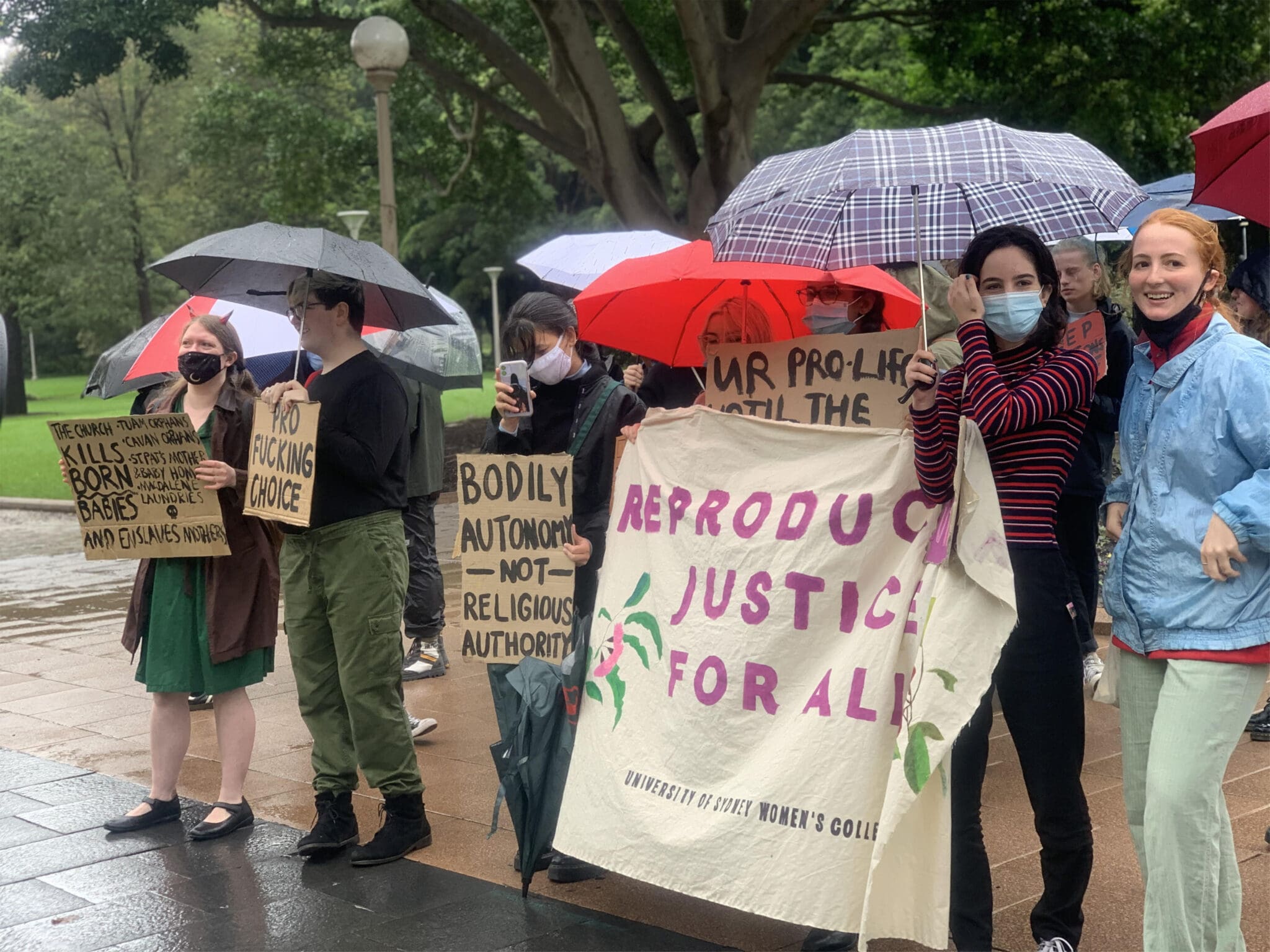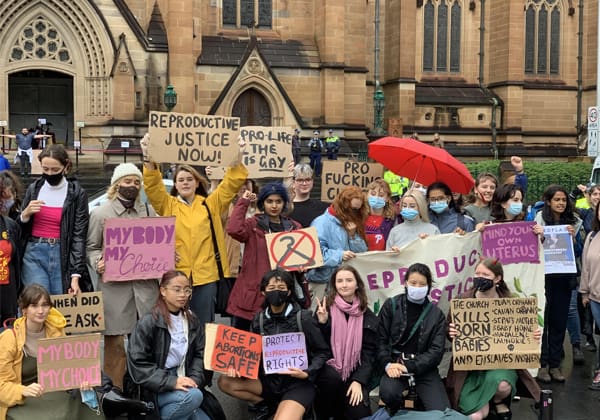Despite the wet weather, a contingent of pro-choice protesters gathered across from St Mary’s Cathedral where anti-abortion advocates had congregated for Day of the Unborn Child.
Established by Pope John Paul II, International Day of the Unborn Child is an anti-abortion day that is promoted and observed annually by Catholic groups. For many years, it has been tradition for feminist activists to counter-protest the event in defiance of pro-life rhetoric.
The pro-choice protest, which was called by the University of Sydney Women’s Collective, highlighted the importance of reproductive justice broadly, from abortion access to fighting against the forced removals of Indigenous children from their communities and culture.

“We use the term reproductive justice instead of reproductive rights because it goes beyond the individualist, pro-choice paradigm of the reproductive rights movement,” said USyd Women’s Officer Amelia Mertha.
“Reproductive justice is access to safe abortion, but it is also access to safe births and the ability to conceive — reproductive justice is gender-affirming surgeries, it is confronting environmental racism, it is adoption, it is access to contraceptives, it is holistic sex and consent education,” Mertha continued.
Additionally, USyd Women’s Officer Kimberley Dibben, highlighted the importance of First Nations justice in the fight for reproductive justice for all. “This colony has a shameful history of forcing sterilisation of First Nations women and continues to remove First Nations children from their communities at a faster rate than the first stolen generation.”
A number of speakers argued that anti-abortion rhetoric is not rooted in faith and religion, but is motivated by a desire to control women’s bodies and deny of bodily autonomy.
“They claim to love the fetuses that they mourn but they care not for women. What they mourn is their grip being pried off women’s bodies, women’s minds and women’s spirits,” said University of Technology Sydney Education Officer Ellie Wardwood.
USyd Interfaith Officer Jayfel Tulabing described her experience growing up as Catholic, and how that experience has intersected with being pro-choice, saying “Whilst I find great comfort in believing in a higher power, the idea of God, Jesus, stories of miracles and lessons for good, I can’t turn a blind eye to the homophobia, transphobia, sexism, prejudice, genocide.”
Dunghutti woman and activist Erin O’Leary further highlighted the effects of colonial religion and anti-abortion rhetoric on First Nations people. “As a queer First Nations woman, I have been oppressed with this religion, my ancestors have been oppressed with this religion.”
“This is hate, this is just plain hate,” said O’Leary, gesturing to the lone pro-life advocate standing across from the contingent.
“I don’t understand why we put a book written two thousand years ago over the life of a woman, over the life of a human being. You care so much about something that isn’t even alive… but you will say to a woman’s face that [you don’t care about her life]”.
Though abortion was decriminalised in New South Wales in 2019, many of the protesters argued that the fight for reproductive justice is far from over.





